
Director-General’s foreword
The case for investing in health
The world needs a strengthened, empowered and sustainably financed World Health Organization (WHO), at the centre of the global health architecture. To ensure that our structures, processes, and culture are fit for purpose, WHO has implemented far-reaching reforms over the past five years.
However, even as we work to strengthen WHO, we are undermined by our financial model with its over-dependence on voluntary, mostly earmarked, contributions for more than 80% of our budget. This constrains our ability to deliver the high-quality normative and technical work that Member States expect of us, to recruit and retain the best talent, and to be the independent and authoritative global health leader which the world needs WHO to be.
Between January 2021 and the Seventy-fifth World Health Assembly in May 2022, the Member States’ Working Group on Sustainable Finance has been addressing the issue and I am grateful to them for their commitment as they seek a long-term solution to this perennial problem. This includes the possibility of increasing assessed contributions, which accounted for only 16% of our budget in the last biennium. This would broaden the base of WHO’s funding and share the funding burden between nations, reflecting their ability to contribute.
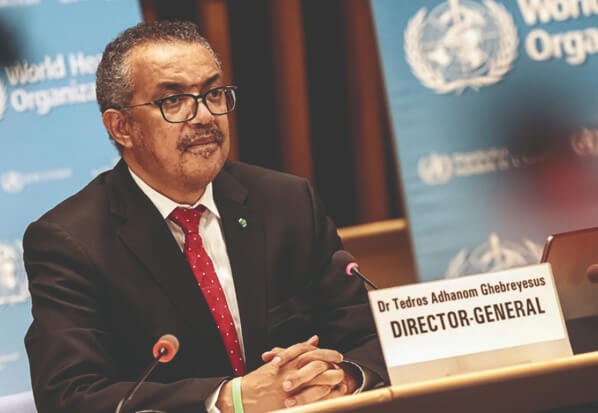
Dr Tedros Adhanom Ghebreyesus
Director-General, World Health Organization
April 2022
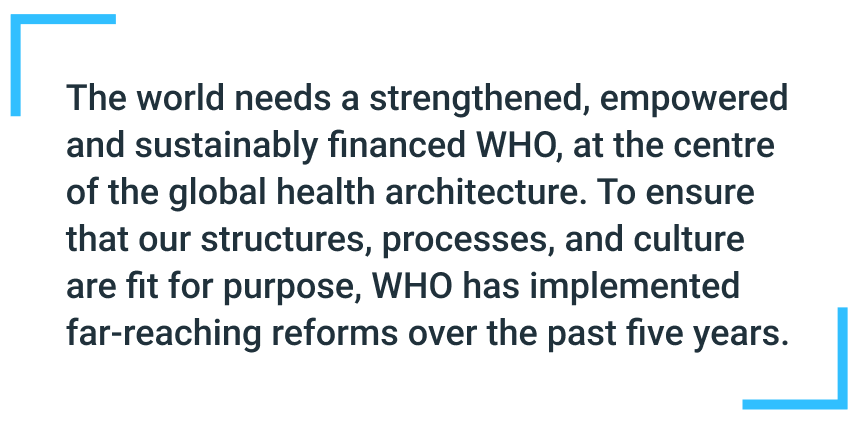
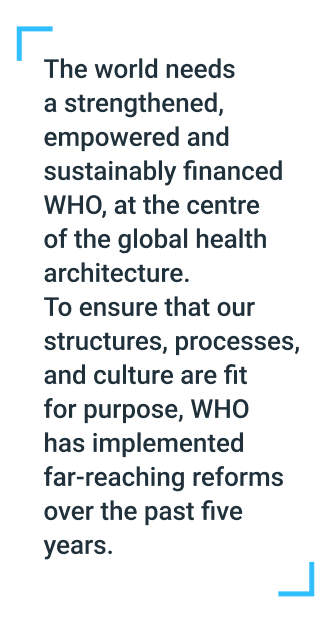
This document is a further contribution from the Secretariat to support Member States in their deliberations. In 2018, I launched WHO’s first corporate investment case for investing in health,¹ and specifically WHO’s Triple Billion targets and the health Sustainable Development Goals. I take no pleasure in noting that the COVID-19 pandemic has reinforced the findings of that document; not only is health a good investment, but it is also an investment that we neglect at our peril.
This second iteration of our investment case quantifies the economic returns from investments in WHO itself. Using a rigorous methodology, it calculates the benefits from investing in WHO over the next 10 years and sets that against the cost of fully funding the projected Programme Budget over the same period. The conclusion is clear: investment in WHO will produce a high rate of economic return. For the strongest results, we need a predictable and sustainable financing model.
I understand that many countries face hard fiscal choices stemming from the pandemic. But I also know that the cost of investing in a strong WHO and other domestic and global health institutions pales in comparison with the collective global cost of the pandemic, estimated at US$ 13.8 trillion through 2024. All the experts’ reviews have said it; if we are unable take this decision for the greater global good now, after all we have experienced over the last two years, then when?
We have a historic opportunity to safeguard and nurture WHO’s unique expertise, global mandate, reach and legitimacy for future generations. The question before us is not whether we can afford to transform the financing of WHO. It is whether we are willing to pay the price of not doing so.
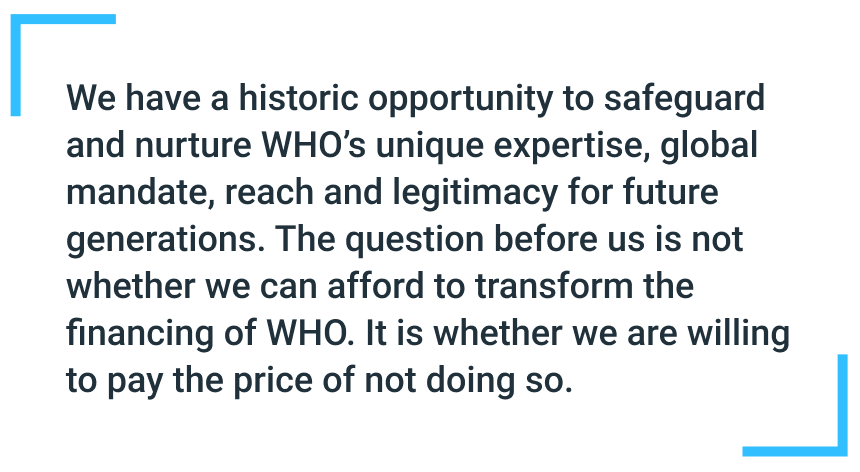
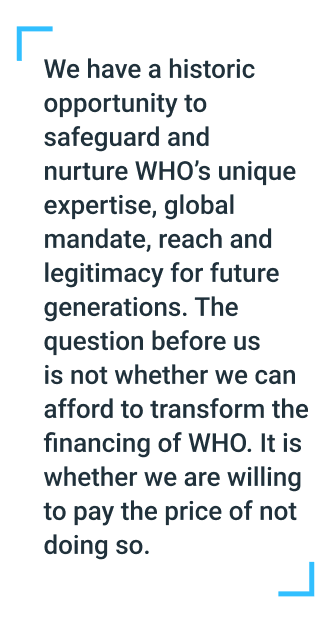
- A healthier humanity: the WHO investment case for 2019–2023. Geneva: World Health Organization; 2018 (WHO/DGO/CRM/18.2; https://apps.who.int/iris/handle/10665/274710).
